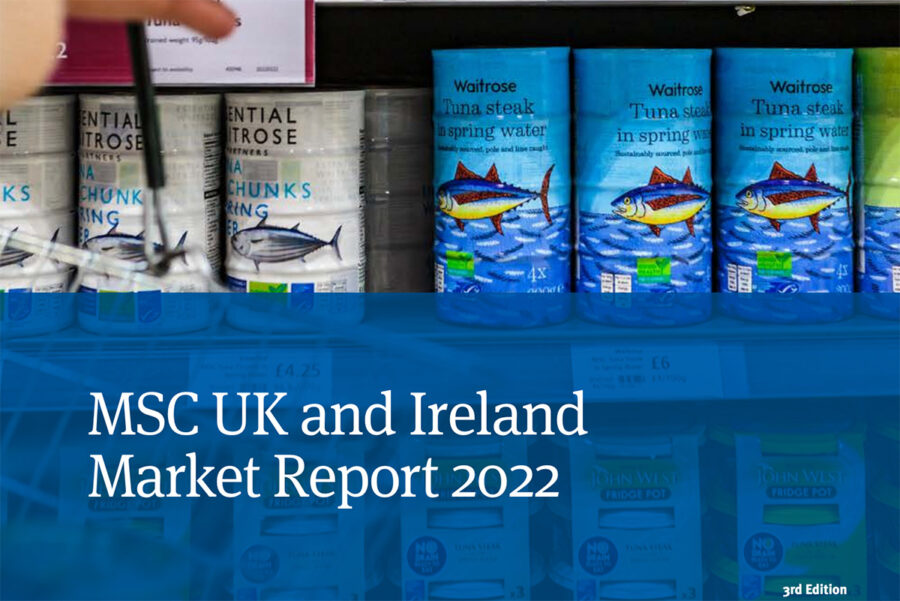The Marine Stewardship Council (MSC) says that its UK and Ireland Market Report for 2022 demonstrates ‘continued progress’, reports Paul Scott.
The report highlights the findings of the MSC’s latest consumer research, examines recent trends in certified product sales, and profiles new sectors and species in sustainable seafood sales in the UK and Ireland.
The MSC says the report, now in its third edition, showcases the ‘continued progress of these markets in sourcing and selling sustainable seafood’.
Last year, UK and Irish consumers spent an estimated £1.26bn on MSC fish and seafood. The organisation says that although the value of MSC-certified fish and seafood did not change between 2021 and 2022, this was despite a drop in the volume (tonnes) of labelled product and menu items sold.
Just over 152,000t of sustainable, wild-caught fish and seafood was sold in the UK and Ireland – 9,240t lower than the previous year. The MSC says this suggests that as retail seafood sales dropped closer to pre- pandemic levels, shoppers shifted from ‘purchasing a lot of higher- volume, lower-cost MSC-labelled products to those that were lower-volume but higher-cost’.
The report also highlights the challenges of Brexit and the impacts of Covid-19, including the suspension of certification of mackerel fisheries in March 2019. The MSC says that the ‘resiliency shown across the industry is once again being tested by the wider impact of the Russian invasion of Ukraine and the ongoing cost-of-living crisis’.
However, it says businesses in the UK and Ireland are continuing to support sustainability commitments. The report cites two supermarket firsts, in which Waitrose introduced MSC Shetland scallops on its fish counters, while Tesco launched a tinned Cornish sardine product under its own brand.
With 49 different certified species on offer, compared to 45 in 2021, the MSC says that seafood lovers had ‘a wider variety of sustainable options to choose from than ever before’. The report also identified that fish oil and supplements continue to be an ‘emerging and important sector for the sustainable seafood movement’, with shoppers spending just over £6.8m on more than 50 different MSC- labelled supplement products.
Meanwhile, there is also a growing desire from environmentally conscious consumers to hold pet food sourcing to the same sustainability standards as products for human consumption. Despite not yet returning to pre-pandemic levels, the volume of MSC pet food sold increased by 51% in the last financial year. The MSC says that retailers and brands have a ‘growing opportunity to provide sustainably sourced pet food to meet the growing demands of conscious pet owners’.
Other trends identified from last year include an increase in sales of certified fish and seafood in foodservice and food-to-go by 79% and 53% respectively, and at 8,550t, the highest-ever volume of MSC-labelled tuna sold in the UK.
That figure still only accounted for 12% of all UK retail tuna sales, but with ‘new commitments to sustainable sourcing, this figure will likely grow further in the coming years’, said the MSC.
The full report can be found here.
This story was taken from the latest issue of Fishing News. For more up-to-date and in-depth reports on the UK and Irish commercial fishing sector, subscribe to Fishing News here or buy the latest single issue for just £3.30 here.
Sign up to Fishing News’ FREE e-newsletter here.








